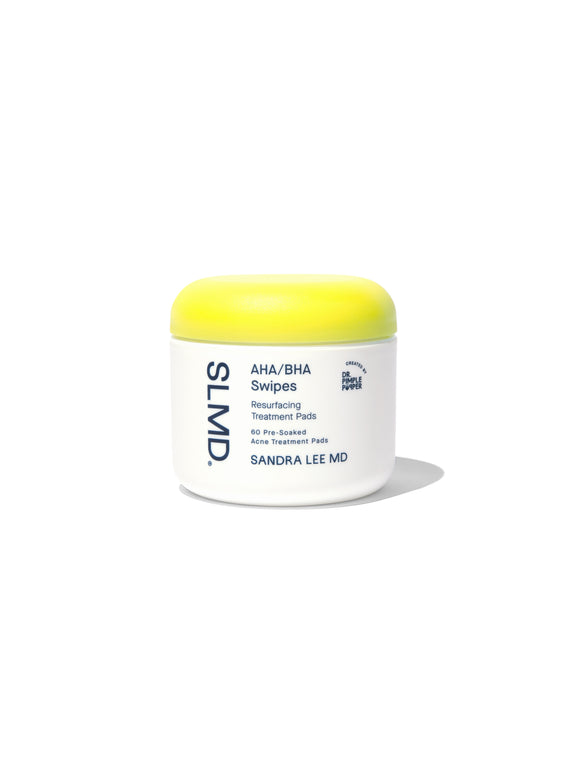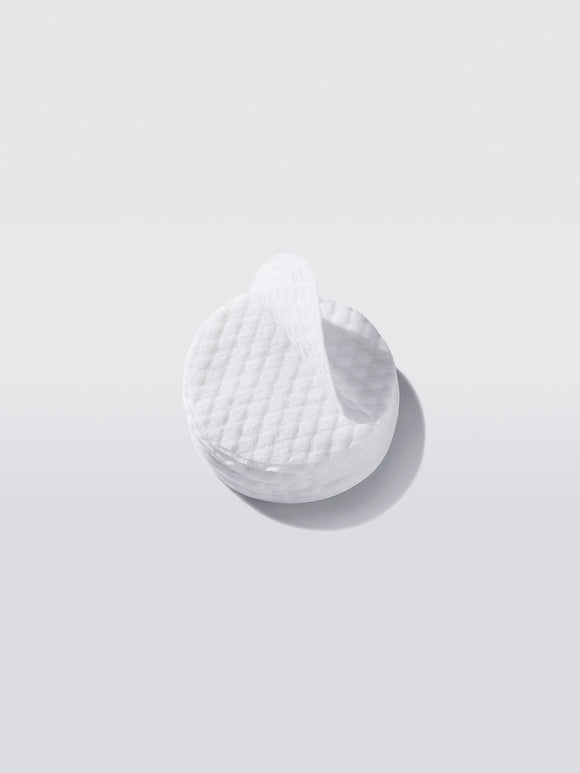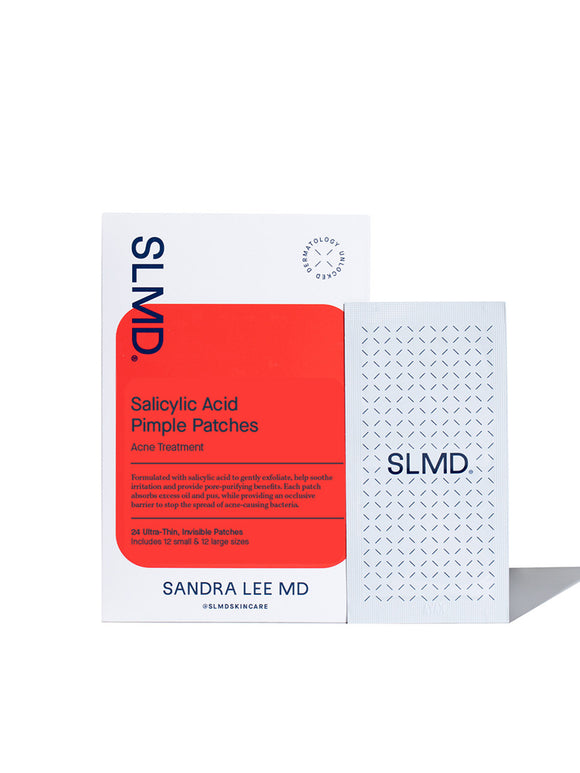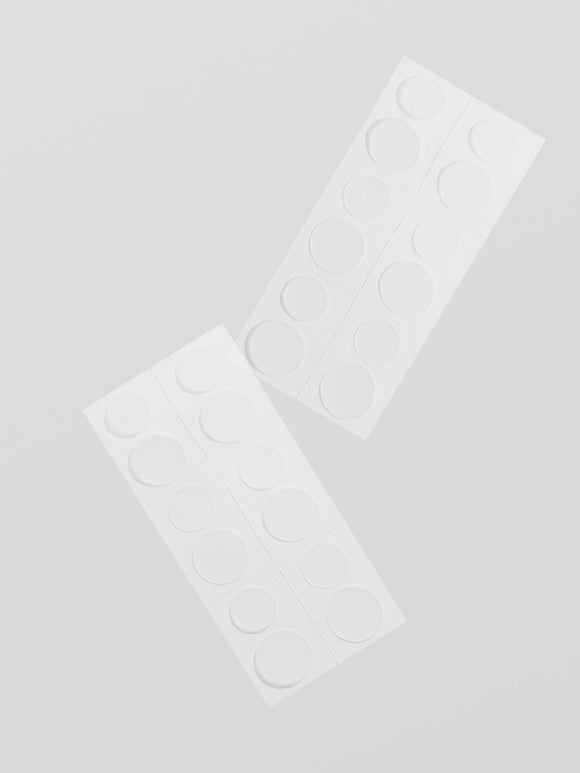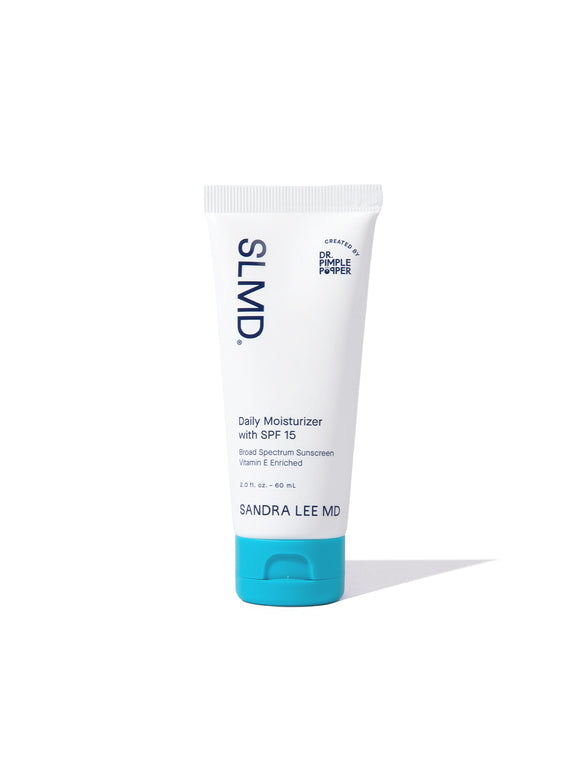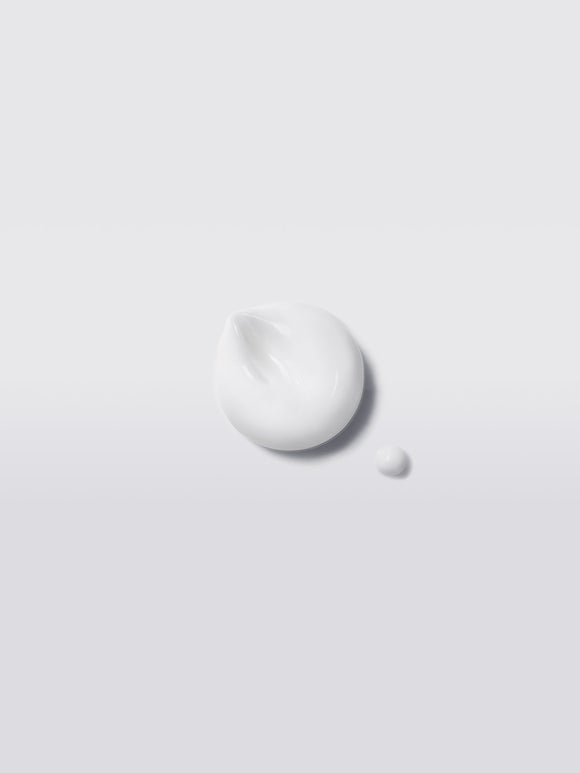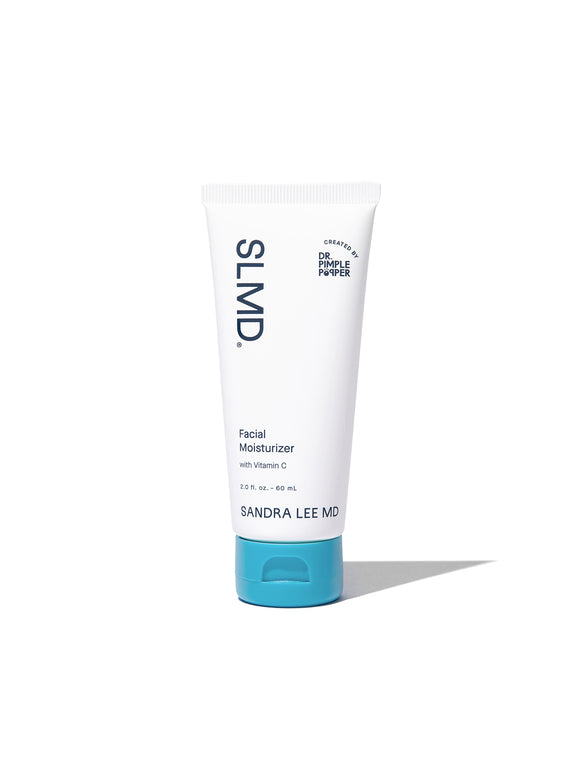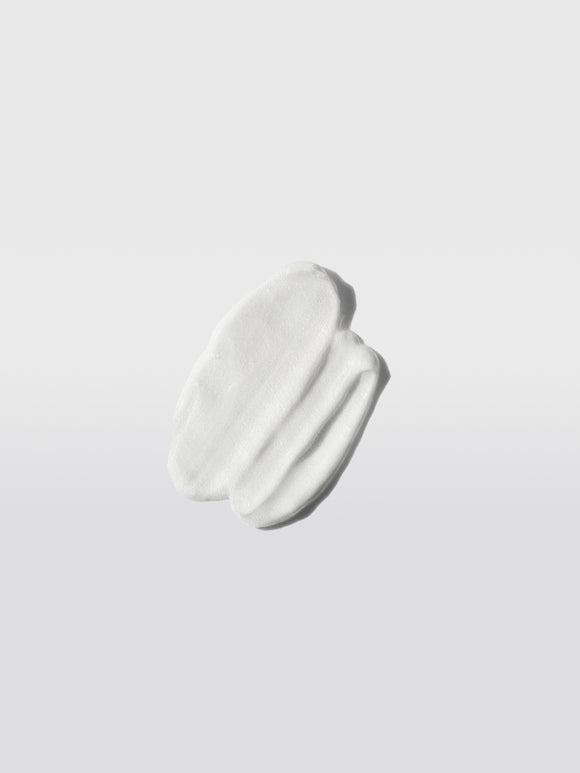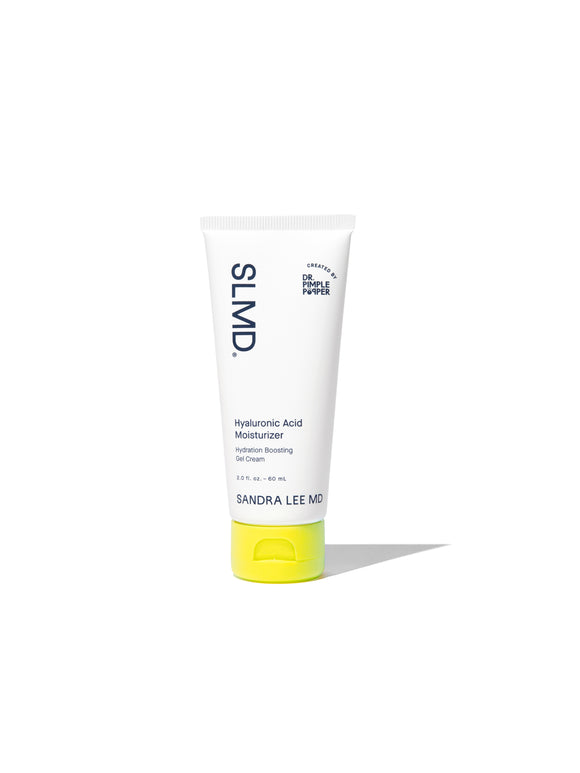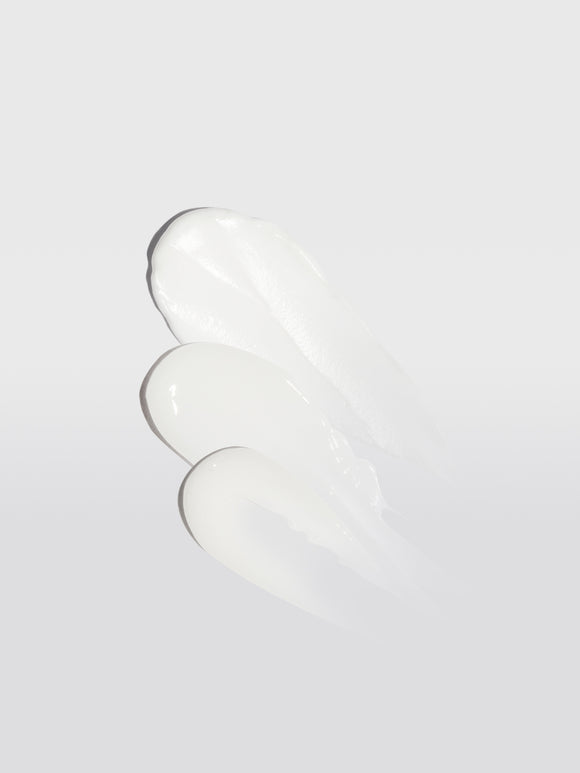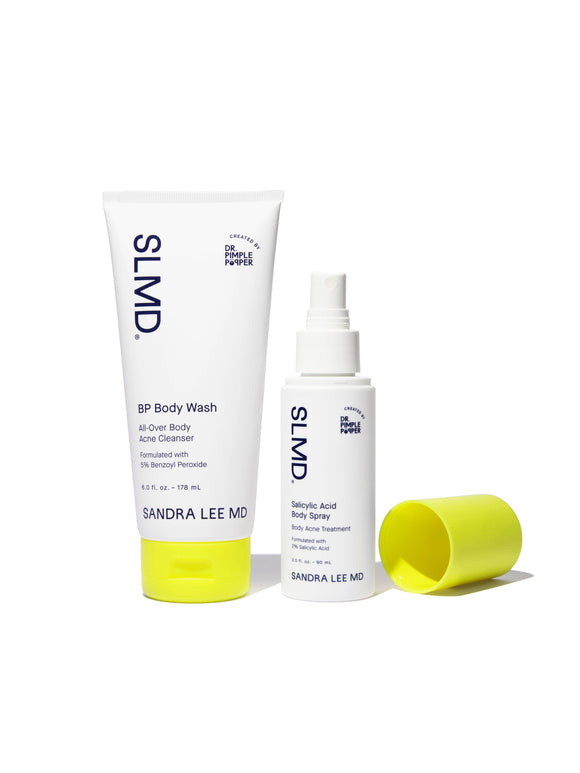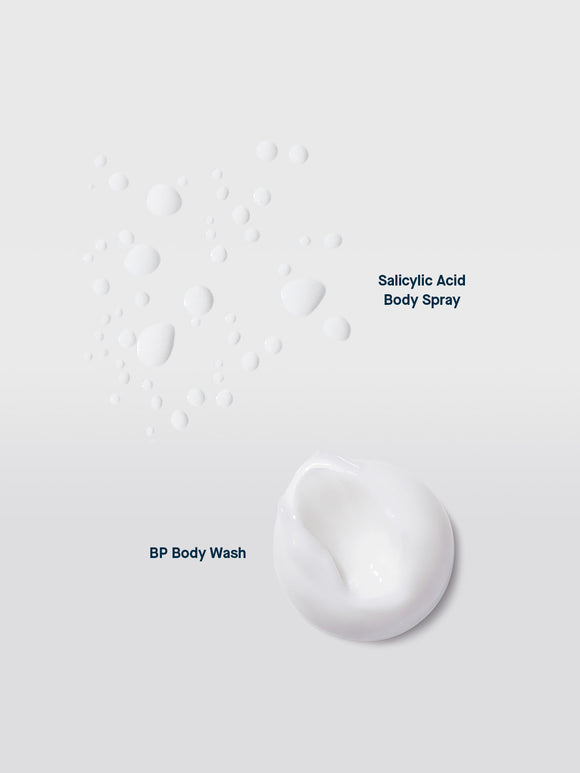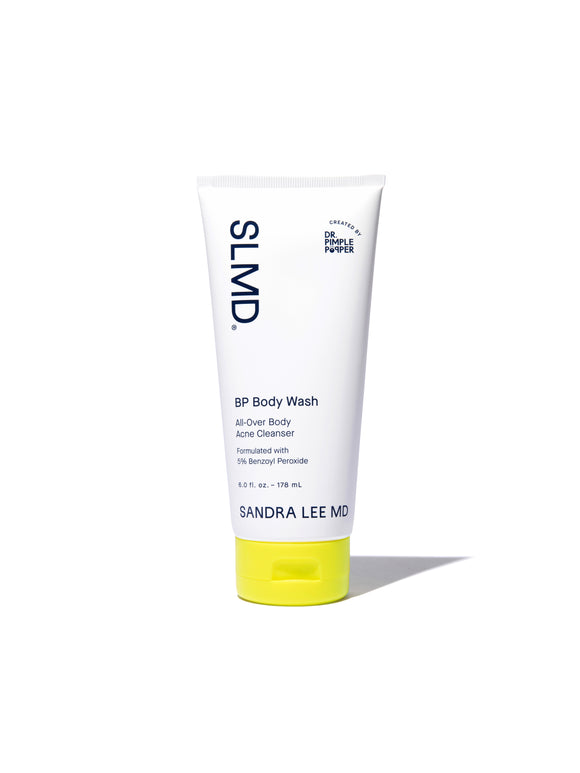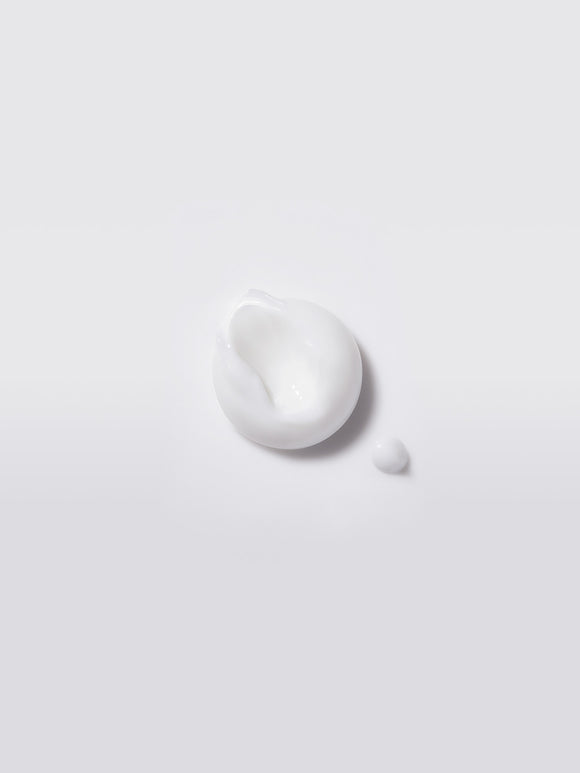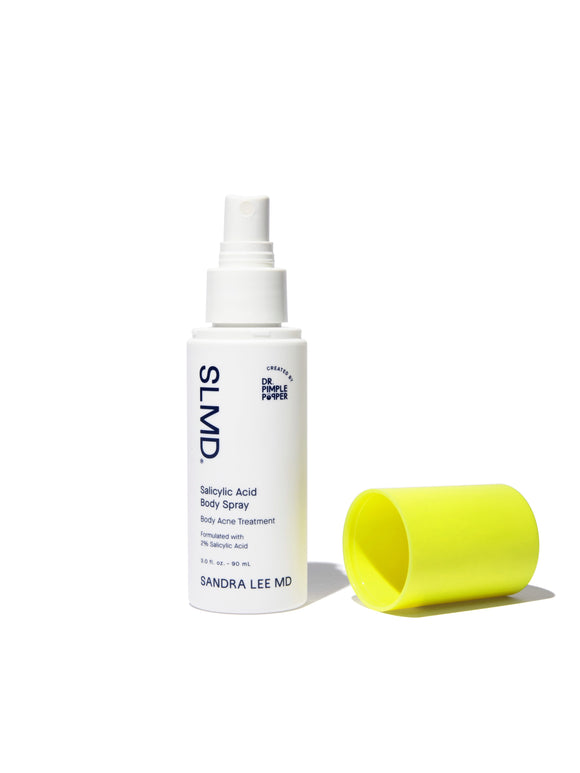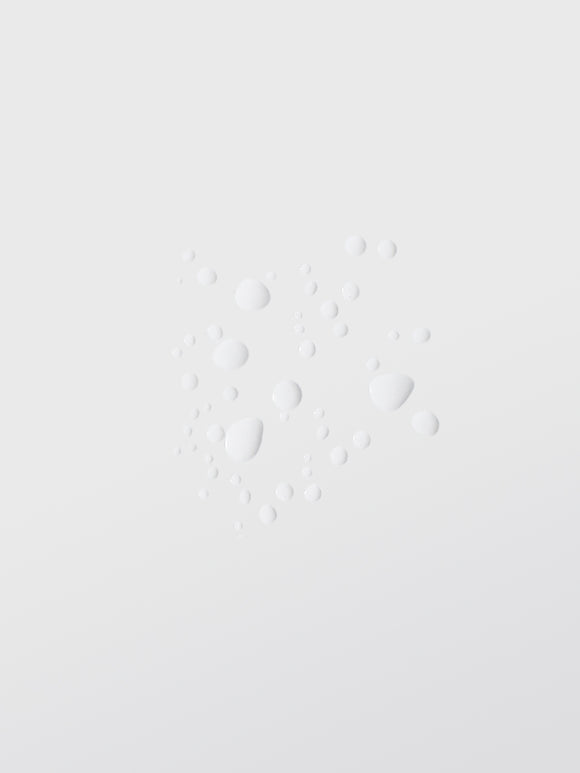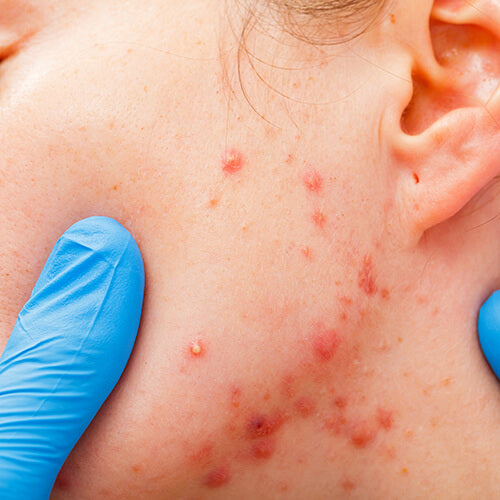
Dr. Pimple Popper's Perspective: Should I Go on Accutane?
Everything you need to know about this highly effective — but often misunderstood — oral acne medication.
Published:
4 minute read
Isotretinoin — better known as Accutane — is one of the most potent tools dermatologists have for treating severe inflammatory acne, particularly nodulocystic acne. It’s a powerful drug with a high success rate, but also one surrounded by a lot of online opinions and concerns.
To sort out the truth about isotretinoin, we interviewed our founder and board-certified dermatologist, Sandra Lee, MD (aka Dr. Pimple Popper). Here’s her take on Accutane: how it works, what to expect, and whether it’s worth all the hype.
Article Quick Links
What Is isotretinoin (aka Accutane)?
Dr. Pimple Popper: Isotretinoin, originally branded as Accutane, is a powerful oral medication used to treat severe nodulocystic acne — those deep, painful, and often scarring breakouts. Interestingly, Accutane was initially developed as a chemotherapy drug. It was approved by the FDA for cystic acne treatment in the 1980s. Although the brand name Accutane is no longer available in the U.S., the drug is still marketed under names like Absorica, Claravis, and Amnesteem.
Because it’s so powerful, isotretinoin is closely regulated by the FDA. Only a doctor, typically a dermatologist, can prescribe it, and patients must undergo strict monitoring throughout treatment. But when taken as directed, isotretinoin has an impressive success rate, with a high percentage of patients achieving clearer skin, often permanently.
How does isotretinoin work?
Dr. Pimple Popper: Isotretinoin is a vitamin A derivative, similar to topical retinoids like tretinoin and retinol. It works by dramatically reducing the amount of oil your sebaceous glands produce and by reducing hyperkeratinization — the process where dead skin cells inside the follicle don’t shed properly.
By reducing oil production and preventing clogged pores, isotretinoin targets the root causes of severe acne. Studies have shown that isotretinoin can reduce acne by 85% or more, making it one of the most effective treatments available.
Dr. Pimple Popper Tip: Start with an over-the-counter solution like SLMD Acne System to treat inflammatory acne.
Acne Treatments to Try BEFORE Accutane
What’s it like to take Accutane (isotretinoin)?
Dr. Pimple Popper: If your dermatologist prescribes Accutane, you’ll follow a strict protocol. Typically, you’ll take the pill twice a day with food, which enhances the drug’s absorption.
As you start taking isotretinoin, your skin will likely become much drier. Common side effects include chapped lips, dry skin, and dry eyes. These symptoms occur because isotretinoin reduces the skin’s natural oil production. You might also experience mild nosebleeds, temporary hair thinning, rashes, or joint pain. Your dermatologist can adjust your dosage to help manage these side effects.
During the first few weeks of treatment, about 1 in 5 patients will experience a phenomenon known as "purging," where acne temporarily worsens before it begins to improve. Most patients see significant results after four to six months of treatment, though some may require a second course of treatment if their acne hasn’t fully cleared.
Is Accutane safe?
Dr. Pimple Popper: There’s a lot of information—and misinformation—about isotretinoin online. The truth is, while there are risks, isotretinoin is the most effective treatment for severe or scarring acne when used under the close supervision of a dermatologist. If I needed it, I wouldn’t hesitate to take it myself or recommend it to my teenagers.
Isotretinoin is safe when taken as directed by your doctor. The strict monitoring process is in place to ensure patient safety. This includes monthly blood tests to check liver and kidney function, as well as cholesterol and triglyceride levels, which can be affected by the medication.
It’s crucial to note that isotretinoin is extremely dangerous during pregnancy, as it can cause severe birth defects. That’s why both men and women taking isotretinoin must participate in the FDA’s iPledge program, which involves monthly pregnancy tests and the use of two forms of birth control.
Additionally, while there’s no definitive evidence linking isotretinoin to depression or suicidal thoughts, it’s important to monitor mental health during treatment. If you notice any mood changes, discuss them with your dermatologist immediately.
How to care for your skin while taking isotretinoin
Dr. Pimple Popper: Most patients experience significant dryness while on Accutane. I recommend using a very mild cleanser, like Cetaphil, and a gentle shampoo. Some people find they need to wash their face and hair less frequently while on isotretinoin.
Hydrating and moisturizing are critical during treatment. Use non-comedogenic products formulated for acne-prone skin to avoid clogging pores. I have two moisturizers that are both balanced to protect the skin barrier without causing breakouts — SLMD Hyaluronic Acid Moisturizer and my Facial Moisturizer with Vitamin C.
For extremely dry or cracked areas, apply a thick emollient like Aquaphor, pure shea butter, or petroleum jelly. Additionally, sunscreen is a must, as isotretinoin increases your skin’s sensitivity to UV rays. Look for a non-comedogenic sunscreen that has broad-spectrum protection (try my SLMD Daily Moisturizer with SPF 15).
Dr. Pimple Popper's Accutane-Friendly Moisturizers
Should I go on Accutane?
Dr. Pimple Popper: The decision to take isotretinoin should be made between you and your dermatologist. This is definitely not something to experiment with using online pharmacies or a friend’s prescription.
If you’ve tried high-quality over-the-counter treatments, like my SLMD Acne System, without success, or if your acne is causing scars, it’s time to consult with a dermatologist. Typically, doctors will try prescription topical treatments (including benzoyl peroxide and/or tretinoin) or antibiotics before recommending isotretinoin.
Don’t be afraid of Accutane if you’re a candidate. We have systems in place to keep you safe, and it can be life-changing for people with severe cystic acne.

Dr. Lee's Last Word
Accutane is a potent option for tackling severe acne, but remember, it's not a one-size-fits-all solution. Regular check-ins with your dermatologist ensure that your treatment is not only effective but also safe, tailored to your specific needs, and adjusted as your skin responds. Stay informed and proactive throughout your journey to achieve the best possible results.





